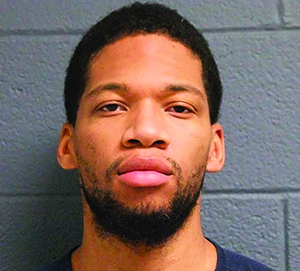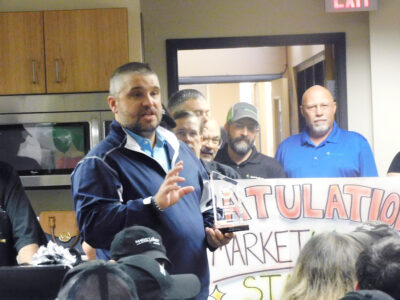Minot man appeals murder conviction

Kamauri Kennedy
A Minot man serving a life sentence for the murder of Dominique Kelley in June 2021 has appealed his conviction to the North Dakota Supreme Court.
Kamauri Siede Kennedy, 36, was found guilty of Class AA felony murder after a five day jury trial in September 2024, and sentenced to life without the possibility of parole on Dec. 17, 2024.
Kennedy filed his appeal on Feb. 18, and oral arguments before the North Dakota Supreme Court in Bismarck were delivered Thursday.
Kiara Kraus-Parr, Kennedy’s attorney for his appeal, argued in her brief that the district court committed an obvious error by failing to exclude character evidence introduced without notice. She said she was flummoxed as to why Kennedy’s trial attorney didn’t object during the trial.
“Part of our notice requirement in North Dakota is actually one step further than a lot of other jurisdictions, where it’s not just that you have to have notice that, yes, we intend to use this information, but this is how we intend to use it,” Kraus-Parr said.
She said testimony elicited at trial by the state presented Kennedy and other individuals as members of a drug trafficking organization and connected Kelley’s murder to their operation.
“It’s an obvious error to include information about the alleged drug dealing. This case wasn’t about a drug deal. He was not charged with drugs,” she said.
Kraus-Parr also took issue with statements by the prosecutor John Michael Gonzalez, which she said were intended to elicit sympathy from the jury for the victim.
“He specifically says, ‘This isn’t about Mr. Kennedy. It’s about the victim in this case.’ To me, that doesn’t go to the elements. That doesn’t go to the theory of the case. That doesn’t go to anything other than ‘you should feel bad because this woman is dead,'” Kraus-Parr said.
Kraus-Parr referred to the initial trial date in March 2024, which was rescheduled after the late introduction of DNA evidence. Kennedy’s attorney William Harve Skees had asked to withdraw from the case shortly before both trials, but was denied by District Judge Gary Lee.
“This is an abuse of discretion standard, but we’re talking about a murder and the potential of life in prison without parole where the defendant is saying, ‘I have concerns this man isn’t going to defend me properly because I haven’t paid him,'” Kraus-Parr said. “It really only considered [Skees]’s reasons for requesting to withdraw and does take into account Mr. Kennedy’s problem with moving forward with an attorney who told him, ‘I can’t handle your case.'”
Kraus-Parr also argued state prosecutors committed prosecutorial misconduct in its closing arguments and allegedly induced perjury and also the evidence was insufficient to sustain a verdict of guilty.
Gonzalez argued that Kennedy’s appeals didn’t hold water due to invited error by the defense during jury selection, and the court didn’t abuse its discretion by denying Skees’ “11th hour” requests to withdraw.


